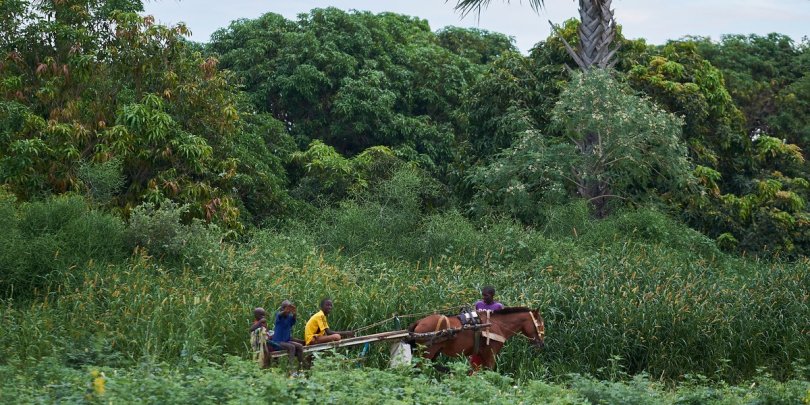
CLIMATE CHANGE AND RESILIENT COMMUNITIES: THE ROLE OF WORKING ANIMALS
As the world gathers for COP26, Brooke Policy Advisor Chiara Soletti discusses the need for governments to recognise working animals and their intersectional role in many of the priorities of the sustainable development and climate action agenda.
One of the main priorities of the 2021 UN Climate Change Conference (COP26) is to enable countries affected by climate change to “adapt to protect communities and natural habitats”. Countries like Senegal and Burkina Faso are hit hardest by the devastating effects of climate change, so we need to see more sustainable development that builds resilient communities.
Working animals support communities’ resilience
Over the past decade, food production in Senegal and Burkina Faso has deteriorated because of climate change. The region has experienced droughts, floods, desertification and salinization of arable lands.
Since 2016, Brooke West Africa has been working with partners within its Forage Crops project to help communities adapt to the effects of climate change, while improving human and animal welfare.
The project helped farmers diversify the crops they were growing to ensure a reliable source of nutrition for working animals. The cowpea is a drought-resilient crop that can be used for livestock feed or sold. Cowpeas thrive with limited water and little attention. Farmers grow the crop during all seasons, providing constant feed for their animals and income for their families.
Brooke West Africa provided farmers with seeds and techniques to make the most of this fodder crop. Farmers’ crop production and income steadily increased providing better nutrition for working animals and improving their overall welfare.
In return working animals help communities produce more food in a sustainable way, in areas where there is not access to machinery. Communities use the money to buy preserved food for unfavourable months where food production might drop, and invest in other adaptation measures, including technology to collect and store water, or renewable energy.
The intersectional role of working equids in sustainable development
Evidence generated by studies and projects like the Forage Crops project have established that working livestock (including horses, donkeys and mules) significantly contribute to the United Nations’ Sustainable Development Goals (SDGs).
These animals play a vital role in agricultural production and food security (SDG2), the fight against poverty for the most vulnerable groups, such as rural households, youth and women (SDG1, SDG5) and improving humans’ health (SDG3). Projects like Forage Crops help build communities’ resilience against the detrimental impacts of climate change (SDG13).
Despite working equids’ socio-economic contribution, government policies and programmes often neglect their welfare. This lack of consideration not only increases the vulnerability of these animals, but also of the communities they live in.
As COP26 kicks off, it is paramount that the international community promotes animal welfare at every level. Governments need to recognise working animals’ intersectional role in many of the priorities of the sustainable development and climate action agenda.
by Chiara Soletti, Global External Affairs Policy Advisor.
Published online for The Brooke on the website of the organisation.
